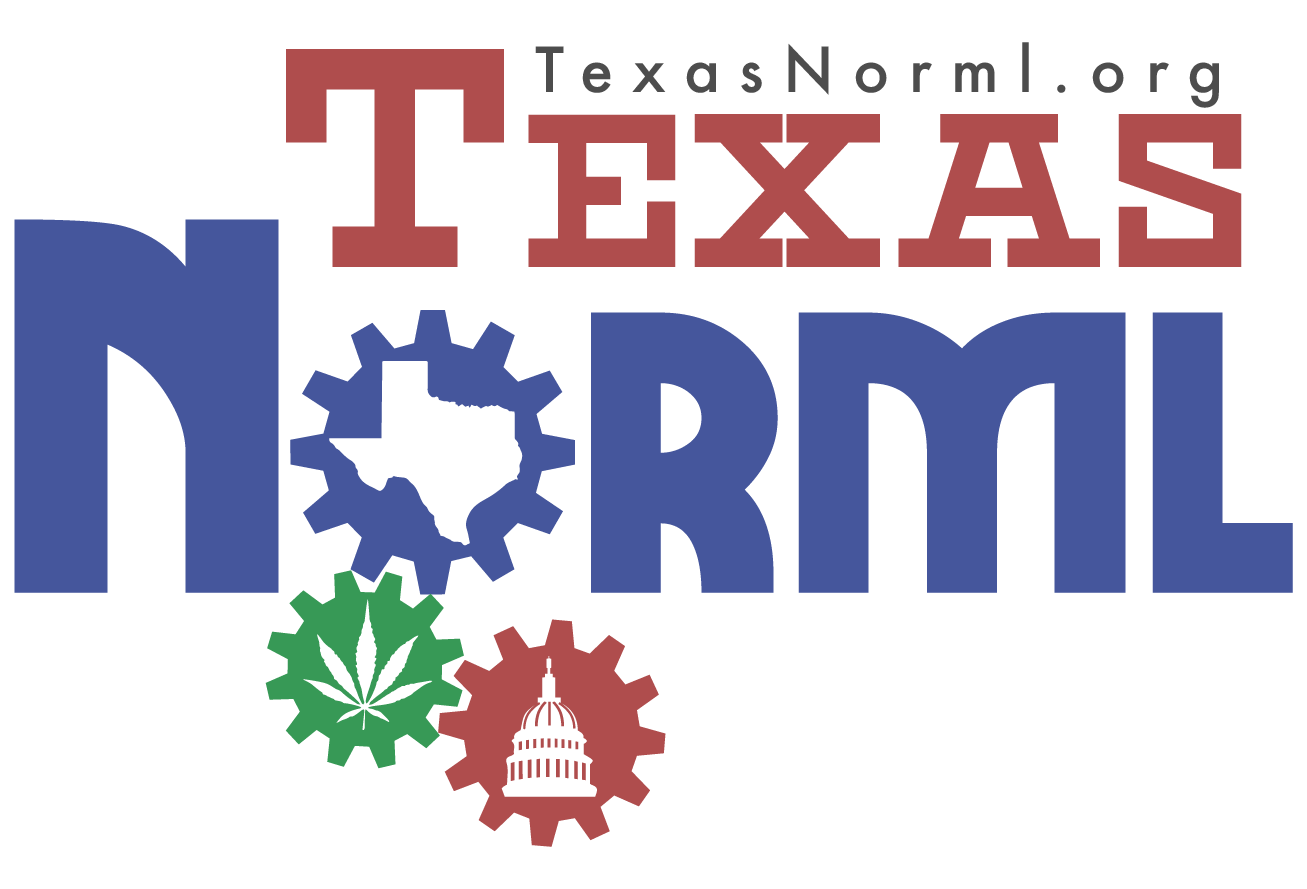TX NORML open meeting notes, July 7, 2010
During last month’s meeting we covered these stories:
– Video of Missouri SWAT raid on Feb 11th goes public, and viral
– Canada Signs Off On Extradition Order For ‘Prince Of Pot’
– White House 2010 National Drug Strategy Calls For Expansion Of Per Se ‘Drugged’ Driving Laws
– Colorado Passes Controversial Tighters Regulations for State Licensed Medical Marijuana Dispensaries
– Oakland, CA, City Council Endorses State’s Cannabis Initiative
– Proposal to legalize marijuana possession in Detroit, qualifies for November ballot
– Marijuana Compound Halts Spread Of Biliary Tract Cancers, Study Says
– Schizophrenia Patients Report Subjective Benefits From Marijuana, Study Says
– Marijuana May Extend Life Expectancy Of Lou Gehrig’s Disease Patients, Study Says
– Marijuana Smoking Associated With Minimal Changes In Driving Performance, Study Finds
Recap of last month’s events:
– Pride Fest was very hot, and not as successful as past years
– Run This Town event was a great event with Reps from the artist, activist, and musical scenes, including Texas NORML, the Green Party, ACLU, and Texans for Accountable Govt.
– First Fridaze at Ruta Maya was a great success, with Ashes of Babylon, Chris Boomer, DJ Ivor, Episode Phive, and Texas NORML did better at the table than the Pride Festival did.
Now for the news from the past month:
Arizona: Medical Marijuana Legalization Measure Certified For November Ballot
Election officials affirmed that a statewide ballot measure to allow for authorized patients to possess and purchase medical cannabis from state-licensed facilities has qualified for the 2010 November ballot.
The initiative would allow state-registered patients to obtain cannabis from licensed dispensaries. Authorized patients who do not have a facility in their local area (defined as within 25 miles of their residence) would be permitted under the law to cultivate their own cannabis for medicinal purposes. Other patients would not be allowed to grow their own marijuana.
Age Of Onset Of Schizophrenia Not Associated With Marijuana Use, Study Says
Cannabis use is not independently associated with the onset of psychosis in first-episode schizophrenia patients, according to clinical trial data published online in the journal Schizophrenia Research.
Investigators at the Zucker Hillside Hospital in Long Island, Bronx Lebanon Hospital, the Albert Einstein College of Medicine, The Feinstein Institute for Medical Research, Yale University, and the National Institutes of Mental Health assessed whether lifetime cannabis use was associated with an earlier age of onset of symptoms in schizophrenic patients. Researchers compared 49 first-episode schizophrenia subjects who had a history of cannabis use to 51 first-episode subjects with no history of illicit substance use.
Authors reported, “Although cannabis use precedes the onset of illness in most patients, there was no significant association between onset of illness and (cannabis use) that was not accounted for by demographic and clinical variables”, and urged more comprehensive research into the subject.
Marijuana Use Associated With Higher Functioning In Schizophrenics, Study Says
Schizophrenic patients with a history of cannabis use demonstrate higher levels of cognitive performance compared to patients who have never used the drug, according to clinical trial data published online in the journal Schizophrenia Research.
Investigators at the Feinstein Institute for Medical Research, the Zucker Hillside Hospital in New York, the Albert Einstein College of Medicine, and Princeton University compared the neurocognitive skills of 175 schizophrenics with a history of cannabis use with 280 subjects with no history of illegal drug use.
Cannabis users demonstrated “significantly better performance” compared to nonusers on measures of processing speed, verbal fluency, verbal learning, and memory. Marijuana use was also associated with better over all GAF (Global Assessment of Functioning) scores.
Authors wrote: “The results of the present analysis suggest that [cannabis use] in patients with SZ (schizophrenia) is associated with better performance on measures of processing speed and verbal skills. These data are consistent with prior reports indicating that SZ patients with a history of CUD (cannabis use disorders) have less severe cognitive deficits than SZ patients without comorbid CUD. … The present findings also suggest that CUD in patients with SZ may not differentially affect the severity of illness as measured by clinical symptomatology.”
Los Angeles Medical Marijuana Oversight Regulations Officially Take Effect
A municipal ordinance capping the total number of medical marijuana dispensaries that may legally operate within the city, how they must conduct their business, and restricting where they may be located went into effect in mid June.
Los Angeles ordinance No. 181069 went into effect in mid June, and seeks to limit the number of legally zoned dispensaries to fewer than 100 in total. The ordinance will allow for some additional facilities to maintain operations if they opened prior to the passage of city’s 2007 moratorium prohibiting new dispensaries, and if they comply with the newly enacted guidelines.
Under the new rules, city officials would require dispensaries to be at least 1,000 feet from certain ‘sensitive’ public locations, such as schools, parks and other gathering sites – restrictions that would compel many existing outlets to either close their doors or change locations.
It is estimated that some 400 facilities will likely be forced to close if the measure is stringently enforced.
To date, over 20 lawsuits have been filed against the city arguing that the ordinance is unconstitutional because it prohibits patients’ access and infringes upon state law.
Under the ordinance, unlicensed facilities determined to be dispensing medical marijuana could face daily fines, a $1,000 penalty and six months in jail.
Local law enforcement authorities told the Associated Press that they “won’t take any action against medical marijuana collectives in Los Angeles until they tally how many of the shops have defied a new ordinance,” which could take months.
Colorado: Medical Marijuana Dispensary Regulations Take Effect
Democrat Gov. William Ritter signed legislation into law last week amending the state’s nearly ten-year-old medical marijuana law.
House Bill 1284 establishes state provisions regulating the distribution of medical cannabis to authorized patients. The law requires medical marijuana dispensing facilities to obtain state and local licensing approval and to be in compliance with all local zoning codes. Dispensaries must pay a state licensing fee, shall be located no closer than 1,000 feet from a school or daycare, and operators must oversee the cultivation at least 70 percent of the marijuana dispensed at the center. Licensed dispensary owners will be required to undergo criminal background checks by the state.
The measure also imposes a statewide moratorium on the establishment of new dispensaries, beginning next month. House Bill 1284 grants local municipalities the authority to prohibit the establishment of dispensaries in their community. Individual caregivers are legally permitted to provide medical cannabis for up to five patients in localities that have formally banned dispensaries.
A second measure signed by Gov. Ritter, Senate Bill 109, limits the authority of physicians so that they may only recommend cannabis therapy to patients with whom they have had a prior counseling relationship. The law also requires doctors to conduct a physical exam of any patient before they recommend marijuana, and prohibits physicians from having a financial relationship with a cannabis dispensary.
It is anticipated that hundreds of the state’s dispensaries will likely be forced to close under the new regulations.
According to a National Public Radio report, over 65,000 Coloradoans are now registered with the state to use marijuana legally under state law.
New Jersey: Governor Calls For Delay In Implementing Medical Marijuana Law
Republican Gov. Chris Christie has called on lawmakers to delay the enactment of The New Jersey Compassionate Use Medical Act, which was signed in to law in January by former governor Jon Corzine. The law, which authorizes patients with a physician’s recommendation to possess and obtain medical cannabis from state-licensed “alternative treatment centers” (aka dispensaries) was scheduled to take effect in July.
At Christie’s behest, lawmakers have introduced legislation to postpone the implementation of the new law by 90 days. Christie has also called for amending the law by limiting the production of medical cannabis to a single supply source, Rutgers University, and by restricting the drug’s distribution to authorized hospitals.
State lawmakers voted on shortly thereafter in favor of the delay to the implementation of the New Jersey Compassionate Medical Marijuana Act, which was slated to go into effect this week.
California: Senate Passes Marijuana Infraction Measure
Senate lawmakers have passed legislation reducing statewide marijuana possession penalties from a criminal misdemeanor to a civil infraction.
Senate Bill 1449 amends the California Health and Safety Code so that the adult possession of up to 28.5 grams (about 1oz) of marijuana is classified as an infraction, punishable by no more than a $100 fine.
Under present law, minor marijuana possession for non-medical purposes is classified as a criminal misdemeanor. While the offense is not punishable by jail time, defendants charged under the law must appear in court, pay court costs, and attend a court-ordered diversion program. Offenders who refuse to attend the program may retain a criminal record for up to two years.
The senate bill was backed by the California District Attorney’s Association, which argued that the present law places an undue burden on California’s courts.
Senate lawmakers passed the bill by a vote of 21 to 13. The measure now awaits action from the state Assembly, Committee on Public Safety.
United Kingdom Approves Marijuana Spray As Medicine — Prescription Oral Spray, Sativex, Now Available To Patient
British health regulators on Friday approved the sale and marketing of Sativex, an oral spray consisting of natural cannabis extracts (primarily the plant cannabinoids THC and cannabidiol aka CBD) as a treatment for symptoms of multiple sclerosis. (MS)
The spray, which has been legally available to patients in Canada since 2005, went on sale in Britain on Monday. The drug will be marketed in the United Kingdom by the Bayer Corporation which estimates that Sativex will cost the country’s state-run National Health Service roughly £11, or about $16, a day for each patient.
GW Pharmaceuticals, makers of the Sativex, is expected later this year to seek separate regulatory approval for the spray in Spain, France, Germany, and Italy.
In 2006, the US Food and Drug Administration authorized recruitment for the first-ever North American clinical trial of Sativex for cancer pain treatment. A Phase III trial is anticipated to begin in the US later this year.
Pot Compounds Inhibit Oral Cancers, Study Says
The plant cannabinoids delta-8-THC and delta-9-THC inhibit cellular respiration and tumor growth in human oral cancer cells, according to preclinical trial data published in the June issue of the journal Pharmacology.
Investigators at the State University of New York (SUNY), Upstate Medical University in Syracuse assessed the anticancer properties of delta-8-THC and delta-9-THC in the human oral cancer cell line Tu183, which is highly resistant to conventional anticancer drugs.
The administration of THC resulted in a “rapid decline” in cellular respiration in malignant cells. By contrast, investigators found that the administration of the endogenous cannabinoid anandamide was “ineffective” as an anticancer agent.
Last year, investigators from Brown University in Providence, Rhode Island reported that the moderate long-term use of marijuana in humans “was associated with a significantly reduced risk of head and neck squamous cell carcinoma.”
A 2008 scientific review published in the journal Cancer Research previously reported that cannabinoids inhibit the proliferation of a wide range of cancers, including brain cancer, prostate cancer, breast cancer, lung cancer, skin cancer, pancreatic cancer, and lymphoma.
Pot Compound Stimulates Neurogenesis, Study Says
The administration of the non-psychoactive cannabinoid cannabidiol (CBD) increases adult neurogenesis (the active production of new neurons) in laboratory animals, according to preclinical trial data published online in the journal Cell Communication and Signaling.
An international team of researchers from Germany, Switzerland, and Mexico assessed the effect of the chronic administration of THC and CBD on spatial learning (memory) and neruogenesis. Authors reported: “THC and CBD differed in their effects on spatial learning and adult neurogenesis. CBD did not impair learning but increased adult neurogenesis, whereas THC reduced learning without affecting adult neurogenesis.”
California: Blacks, Latinos Arrested Disproportionately For Marijuana Possession Offenses, Study Says — California Chapter of the NAACP Endorses Marijuana Legalization Ballot Measure
African Americans are arrested for marijuana possession offenses in California’s 25 largest counties at more than twice the rate of Caucasians, according to a report released this week by researchers at the Queens College, City University of New York and Shenandoah University in Virginia.
African Americans are less likely than whites to use cannabis, but are far more likely to be arrested by police for possessing it.
“Young blacks use marijuana at lower rates than young whites. Yet from 2004 through 2008, in every one of the 25 largest counties in California, blacks were arrested for marijuana possession at higher rates than whites, typically at double, triple or even quadruple the rate of whites,” they determined. “Blacks were arrested for simple marijuana possession far out of proportion to their percentage in the total population of the counties. In the 25 largest counties as a whole, blacks are 7% of the population but 20% of the people arrested for possessing marijuana.
Overall, authors reported that in 2008 African Americans and Latinos combined comprised less than 44% of the state’s population, but together constituted 56% of the people arrested in California for possessing marijuana. An estimated 80 percent of those arrested were age 29 or younger.
Citing the report, leaders from the California chapter of the NAACP on Tuesday expressed its “unconditional support” forProposition 19: The Regulate, Control & Tax Cannabis Initiative 2010, which would allow adults 21 years or older to possess and cultivate marijuana for personal use. It would also permit local governments the option to authorize the retail sale and commercial cultivation of cannabis to adults. Personal marijuana cultivation or not-for-profit sales of marijuana would not be taxed under the measure.
Alice Huffman, President of the California State Conference of the NAACP stated: “We have empirical proof that the application of the marijuana laws has been unfairly applied to young people of color. … We are joining a growing number of medical professionals, labor organizations, law enforcement authorities, local municipalities, and approximately 56% of the public, in saying that it is time to (depenalize) the [adult] use of marijuana.”
The president of the California Black Chamber of Commerce, also spoke in favor of the initiative.
In 2008, police in California made over 61,000 arrests for marijuana possession offenses, a criminal misdemeanor.
Upcoming Events & Alerts
– Friday, July 16th, we’ll be at Encore Club, 611 Red River St, for the CD release party for our friends and local musicians, Indofin. Also playing that party will be the Buzzkillers, Under The Gun, and Root Dimension; this lineup will bring a great energetic mix of punk-rock and reggae! It is an all ages event, and cover will be $7 or $10
– Saturday, July 24th, we’ll be at Waco NORML’s 1st birthday party (explanation of the members mixer change) at the Lone Star Bar & Grill, with live music and Representatives from DFW NORML, TX NORML, Waco NORML, and LEAP! Cover is only $5, so if you can make it please consider.
– Our next open meeting will be on Wednesday, August 4th, right here at Flamingo Cantina, same time.
– Our 5th Annual 6th St Smokeout is Saturday, October 2nd, at Momo’s Club, and will be headlined by Austin’s own Asylum Street Spankers!! Stay tuned for official announcements, support bands, posters, etc.



